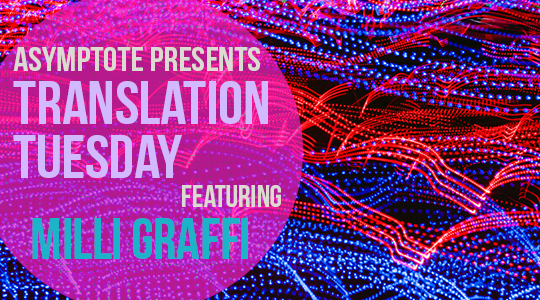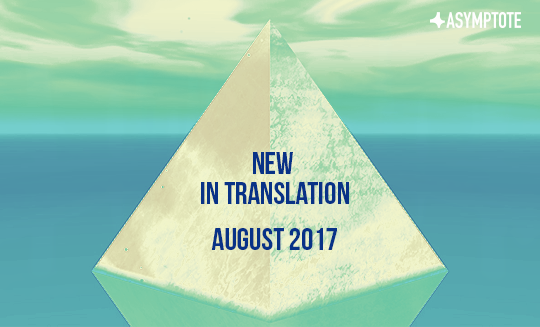I fell in love with the poetry of Milli Graffi in 2008, when I was seeking authors to include in a dossier for Aufgabe on “poesia ultima e della ricerca,” or the latest Italian poetry of research. It was immediately clear to me that we had heroes in common—Lewis Carroll and James Joyce in particular.
There’s a section in Finnegans Wake on Anna Liva Plurabelle in which Joyce speaks of “loosening your talktapes.” When he translated this passage into Italian, Joyce himself rendered this phrase as “scioglilinguagnolo,” a translation that likely reveals the matrix of the original notion he had in mind: in English, we speak of tongue twisters, or what we might render in Italian as attorci–lingua, while in Italian one uses the term “scioglilingua,” or tongue-dissolvers, tongue-thawers, tongue untiers. The Italian idiomatic expression might very well have been the origin of the “loosening” that ended up in Finnegans Wake, a book in which all languages converge in tangles of phonemes and roots.
I discovered this point of correspondence in a book of English exercises that Milli Graffi edited for Paravia publishers, aimed at high school students—because Graffi, unstoppable champion of the avant-garde that she is, chose this mind-twistingly complex passage for the teaching volume. When we got together this summer in Milan to prepare for a public chat on translation, on a sultry heat-thickened afternoon further stultified by a city-wide transit strike, Milli told me that she had used the word in a poem, and I knew that I had to try translating it.
The work was published in Mille graffi e venti poesie, 1977-78 (Geiger, 1979), and I soon found that Graffi had rendered Joyce’s phrase even more Byzantine, because she transformed scioglilinguagnolo into sperdilinquagnolo, turning the action of loosening embedded in the original Italian phrase into loss (sperdersi refers to losing oneself; sperdere means dispersal, scattering), and lingua (“tongue; language”) into linqua, some sort of calque tending toward the English “linkage” while containing the heavily deictic “qua” (Italian “here”; Latin “what; as; in the capacity of”). I took other necessary liberties while working with this poem: my translation of ambiscia is a calque of ambassador and ambush, and so on. A proper gloss would proceed word by word, but I’ll leave it up to readers to discover some tripwires of their own.
—Jennifer Scappettone


